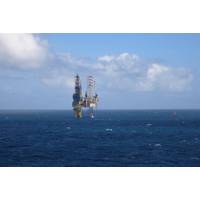After election victory, the PM of Norway says that Norway must continue to be a reliable supplier of energy
Norway will continue to explore oil and gas, and remain a reliable energy supplier to Europe. This was the message of newly elected Prime Minister Jonas Gahr Stoere on Tuesday. On Monday, the minority Labour Party won a second mandate in office while the populist rights achieved their best ever election results. The ballot was dominated by worries about rising living costs and conflicts in Ukraine and Gaza.
Norwegians choose new parliament after a closely contested election clouded with geopolitical anxiety
Norwegians will head to the polls to elect a new Parliament on Sunday and Monday. It is a tight race between the left-wing Labour Party, which has been in power for many years, and the right-wing Progress Party and Conservatives. According to the average of polls taken this month by pollofpolls.no, centre-left parties Labour, Socialist Left and Communists are expected to win 87 seats. This is just two seats more than what's needed for a majority.
Norway prepares its first major licensing round for oil and gas in years
Norway's Energy Minister said Friday that he was preparing to launch a round of oil and gas licenses on the Norwegian continental shelf. This will be the first new offer of drilling permits for frontier areas which have not been explored since 2021. In a statement, Labour Party Minister Terje Aasland said that Norway will be a reliable supplier of oil to Europe for a long time. The Norwegian continental shelf is also expected to continue creating value and jobs in Norway.
Nordic countries debate energy policy after spikes in power prices
On Thursday, the hourly electricity prices in certain parts of Scandinavia reached record levels. They were tenfold higher in some cases than average, due to cold weather and lower wind power production. This prompted politicians to suggest a change in energy policy. In Denmark, the price per megawatt-hour (MWh) for an hour starting at 1600 GMT has risen to 936 Euros. South-western Norway and Southern Sweden have seen prices above 700 Euros/MWh.
Developer: Five investors bid for UK Sizewell C nuclear stake in the bidding process
The project developer said on Thursday that five investors were involved in the bid to buy stakes in Sizewell C, the nuclear plant being constructed in Britain by EDF and the British government. The Labour Party in Britain has stated that nuclear plants are important to help the country achieve its climate goals and decarbonise their electricity sector. The project is looking for investors to invest in the Sizewell-C nuclear plant.
Norway will increase spending on its wealth fund to $43 billion by 2025
The Norwegian minority government announced on Monday that it will raise public spending from Norway's $1.8 trillion sovereign fund in 2025 to pay for expenses. Elections for the parliament are due in September next year. The Labour Party and Centre Party have proposed to withdraw 460.1 billion Norwegian crowns (43 billion dollars) in 2025. This is an increase from a revised 416 billion in 2024. Now, the government must negotiate with the Socialist Left in order to pass the budget.
UK energy prices rise 10% due to extreme weather and geopolitics
The British energy regulator Ofgem raised the price cap for household energy bills on Friday by 10%, from October 1, to a level of 2,250.64 pounds per year. This increase was blamed on extreme weather conditions and conflicts like the war in Ukraine. Brearley stated that the increase in price cap will be difficult for many families. The 10% increase for a dual-fuel household on Friday was slightly higher than analysts' expectations.
Norway Fund to Sell E&P Firms

Norway's trillion-dollar sovereign wealth fund, the world's biggest, will sell its stakes in oil and gas explorers and producers but still invest in energy firms that have refineries and other downstream activities, according to a government plan.The proposal announced on Friday said the fund's stakes in integrated companies, such as Royal Dutch Shell, ExxonMobil and other majors involved in everything from exploration to selling fuel at the roadside…
London Ups Vehicle Emissions Tax
London brought in a new levy on the oldest and most polluting cars entering the city centre from Monday, almost doubling how much motorists have to pay in the latest blow to diesel. Drivers are already charged 11.50 pounds ($15) to enter the financial district and parts of west London under a congestion charge. But those driving petrol and diesel vehicles typically registered before 2006 will need to pay an additional 10 pounds.
Norway's Labour Calls for Debate on Oil Tax Regime

Norway should review its generous tax regime on oil drilling because of climate change, the opposition Labour party said on Monday, three weeks before a parliamentary election which opinion polls suggest it is on course to win. Labour's Marianne Marthinsen, a member of parliament's Finance Committee, told daily Aftenposten that Western Europe's top oil producer should look at changing rules that allow oil firms to reclaim costs of "failed exploration campaigns".
Oslo's Radical 'Climate Budget' Aims to Halve Carbon Emissions
Oslo's leftist city government issued its first "climate budget" on Wednesday aiming to halve greenhouse gas emission within four years in one of the world's most radical experiments to slow global warming. The budget, setting out annual goals to choke off emissions from cars, homes and businesses in the Norwegian capital, adds to a scheme announced last year to ban private cars from the city centre.
Britain's First U.S. Shale Gas Arrives in Scotland
Britain's first shale gas delivery from the United States sailed into a heated European political debate on fracking on Tuesday and immediately ran into its first practical problem - the Scottish weather. The huge "Ineos Insight" tanker had entered the Firth of Forth at sunrise, a lone Scots piper playing on its bow, as it headed for the Grangemouth refinery, west of Edinburgh. But gusty squalls prevented it from unloading its controversial cargo before an assembled crowd of dignitaries.
Brexit Uncertainty Weighs on Commodities, Gold
But for how long? Amid the horror for many, the elation for others and the shock for virtually everybody of the British vote to exit the European Union, perhaps the most measured and predictable response was from commodity markets. As it became clear on Friday that the Leave camp was going to pull off an unexpected victory, commodities did what they normally do in a period of heightened risk, they declined.
El Nino's End Offers Hope for Distillates: Kemp
Britain's Labour Party adopted the song "Things can only get better" as its campaign anthem for the 1997 general election, expressing the party's ambitions for governing after 18 years in the wilderness of opposition. Global oil refiners struggling with enormous stocks of distillate fuel oil as a result of a warm winter and the slowdown in world trade may be tempted to share the same sentiment about the winding down of El Nino.
UK to Allow Fracking Beneath National Parks
British lawmakers on Wednesday voted in favour of the use of fracking to extract shale gas under national parks, weakening a decision against fracking in national parks made earlier this year and giving shale gas explorers access to more resources. Britain is estimated to have substantial amounts of gas trapped in underground shale rocks and Prime Minister Cameron has pledged to go all-out to extract these reserves, to help offset declining North Sea oil and gas output.
Oslo's Pension Fund to Pull Out From Oil, Gas Firms
The Norwegian capital's public pension fund will divest its holdings of companies producing oil and gas to give it a greener profile, the newly elected centre-left city council said on Monday. Oslo Pensjonsforsikring had already began divesting from coal under the outgoing right-wing council, but will now sell all stakes in oil and gas firms, it said. The fund's assets amounted to 75 billion crowns ($9.25 billion) at the end of 2014.
Britain's New Government to Kick-Start Shale
Britain's new Conservative government could take control of planning decisions to speed up the development of shale gas and prevent investor money from drying up, lawyers say. Britain is estimated to have enough shale gas trapped below its surface to meet its gas needs for decades. But deployment of the controversial fracking technology required to release gas trapped in rocks has been slow as planning hurdles and environmental protests have prevented companies from digging in the ground.
Cameron Taps Rudd as UK Energy Secretary
British Prime Minister David Cameron has named Amber Rudd, one of the lesser known names from his party, as energy minister to tackle such controversial issues as government support for onshore wind farms and shale gas. Rudd, a former investment banker who previously served as parliamentary under-secretary in the Department of Energy and Climate Change for less than one year, replaces Ed Davey, a member of the Liberal Democrat Party who lost his parliamentary seat last week.
UK Warns Off BP Suitors Now Shell Unavailable as 'White Knight'
Britain's warning to potential suitors of BP is a sign of the oil major's vulnerability to a takeover bid and that a more politically palatable tie-up with Royal Dutch Shell no longer seems to be an option, banking and industry sources said. Despite championing a laissez-faire policy towards takeover deals, Britain has always had a special interest in BP, dating back to the creation of the company via an unusual government investment master-minded by Winston Churchill.
British PM: Firms Should Raise Wages to Reflect Gains from Lower Oil Price
Companies benefiting from lower oil prices should pass on gains to their employees by raising wages, British Prime Minister David Cameron said. A glut in global oil supplies has caused Brent crude prices to more than halve in little more than six months. Britain's political parties are competing to try to show they can best help voters benefit from the fall, as a national election looms in May. Cameron…